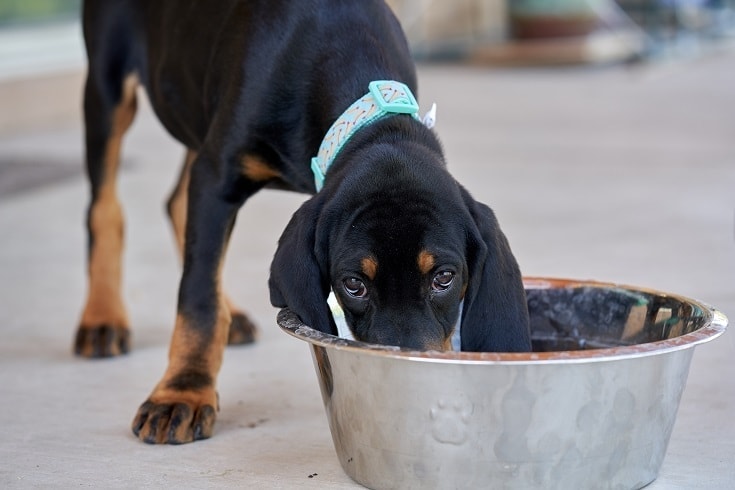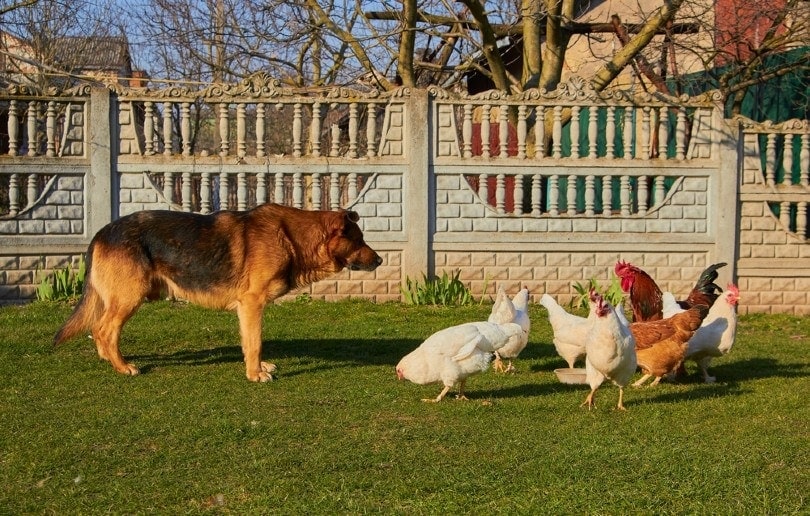Why Does My Pug Sleep So Much? Understanding Dog Behavior

Updated on
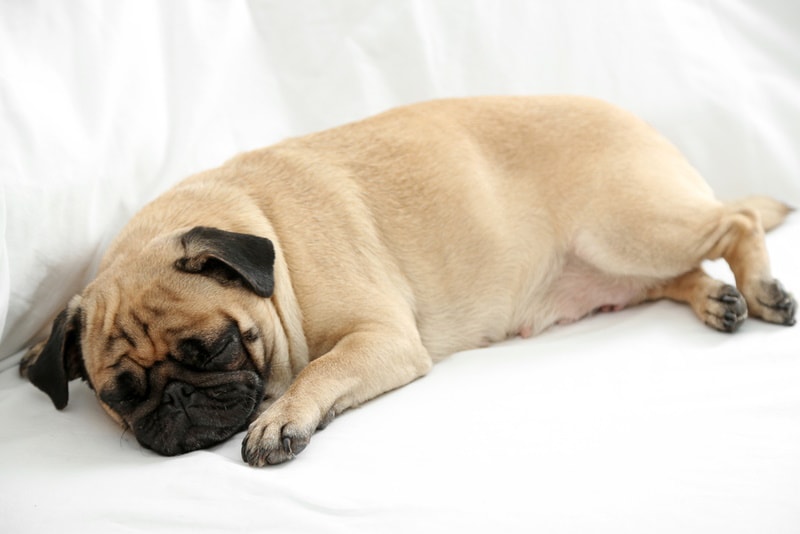
The Pug has become one of the most popular dog breeds thanks to their quirky appearance and friendly attitude. This tiny breed does have some unusual habits that set it apart from other breeds and while some, unfortunately, are caused by their brachycephalic facial shape, some are behavior-based attributes.
Among the traits that some people accuse the Pug of having is that they are lazy dogs that sleep a lot. In reality, the Pug is a toy breed, and this companion dog may not have the energy levels or the stamina of something like a Border Collie, but its 14 hours a day sleeping pattern isn’t that unusual for a dog of any breed. You may notice it more because of the heavy breathing and snoring that tends to emanate from that squashed face.
If your Pug is sleeping up to 14 hours a day, it is normal, but if yours is sleeping more than this, you may need to investigate to determine the cause and look for ways to remedy the problem.
About The Pug
The Pug is a toy breed of companion dog. The breed has been developed to accompany their owner and provide companionship and has never been a working dog. The breed is known to be affectionate with family, will bond with visitors and even strangers, and they will usually get along with other dogs and potentially even cats. Pugs are known to enjoy having fun, which makes them a good choice for families with children, and although the breed doesn’t have excessive energy levels, they do enjoy getting out to enjoy some fresh air and some healthy exercise.
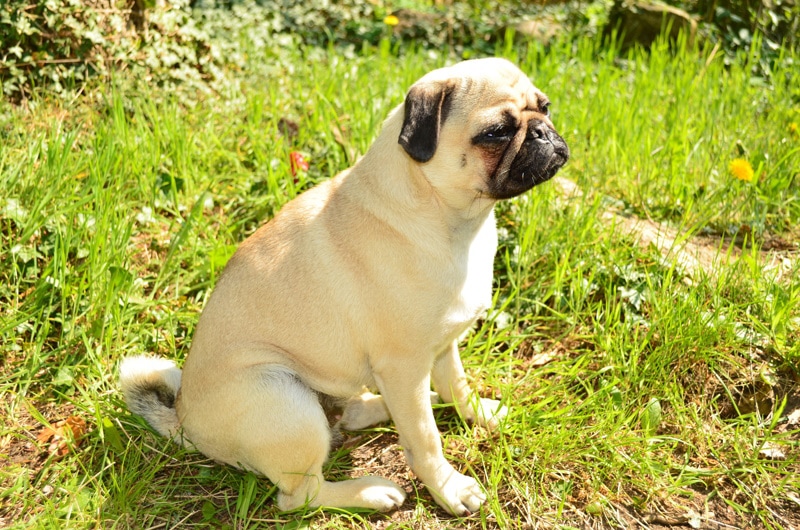
Pug Sleeping Habits
Adult Pugs should sleep between 10 and 14 hours a day. Because this is several hours a day longer than most people sleep, it can seem like Pugs spends their entire life snoozing. It’s also worth noting that puppies and senior dogs may sleep a little longer than this. Puppies can sleep as long as 20 hours a day while senior Pugs may sleep for 15 or so hours a day.
If your Pug is sleeping 14 hours a day, it shouldn’t be too much of a cause for concern. Although you can take some steps to reduce this a little, you need to ensure that your dog is getting enough sleep to recharge and stay healthy. Aim for about 12 hours of sleep a day. And just because your dog seems to be sleeping a lot, doesn’t mean that they necessarily are. If your Pug gets up for an hour at night while you’re asleep, and then sits awake most of the time you’re out of the house, your Pug could be doing most of their sleeping while you’re at home, so it seems longer.
Top 6 Causes Of Excessive Sleeping
If you determine that your Pug is sleeping more than 14 hours a day, take a look at the possible causes. Such causes include:
1. Boredom
Pugs like fun and they enjoy spending fun time with their owners. If your Pug gets bored, one of their few options is to go to sleep in the hope of waking up to something more exciting. Try to introduce more playtime, offer a greater range of more exciting toys, and look for ways to provide stimulation that will keep your pup entertained. If you aren’t around to provide this stimulation and your Pug isn’t interested in toys, you can always consider doggy daycare.
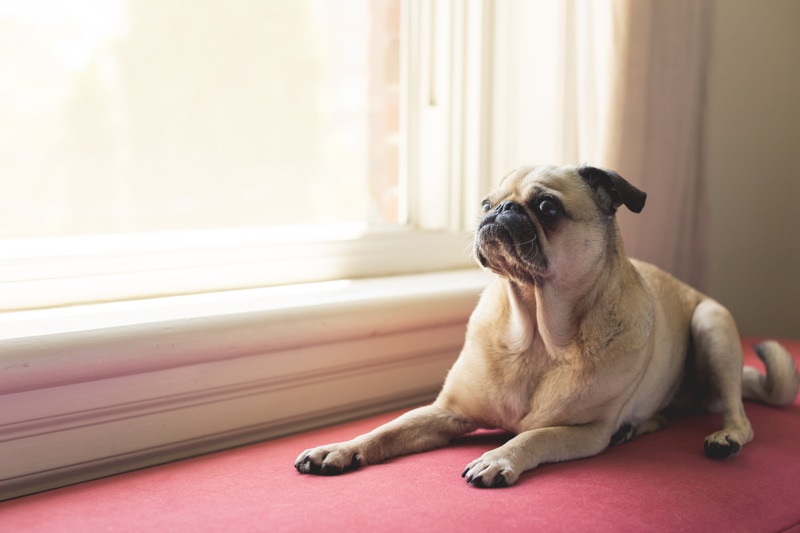
2. Not Enough Exercise
Pugs don’t need huge amounts of exercise, but they do need some. You should provide up to an hour a day of decent exercise, including walks and playtime. The exercise shouldn’t be too intensive because brachycephalic dogs like Pugs can struggle with breathing. Make sure you provide two walks a day, of between 20 and 30 minutes each, and supplement this with some time playing with toys or playing games like hide and seek.
3. Obesity
Because they don’t need a lot of exercise but do like to eat, Pugs are prone to becoming overweight, and once your Pug is overweight, they may be sleeping because they find it difficult to get up and get around. Stick to an appropriate diet and if your Pug is overweight, consult a vet so that they can advise you on the best next steps to shed the pounds and achieve a healthy weight.
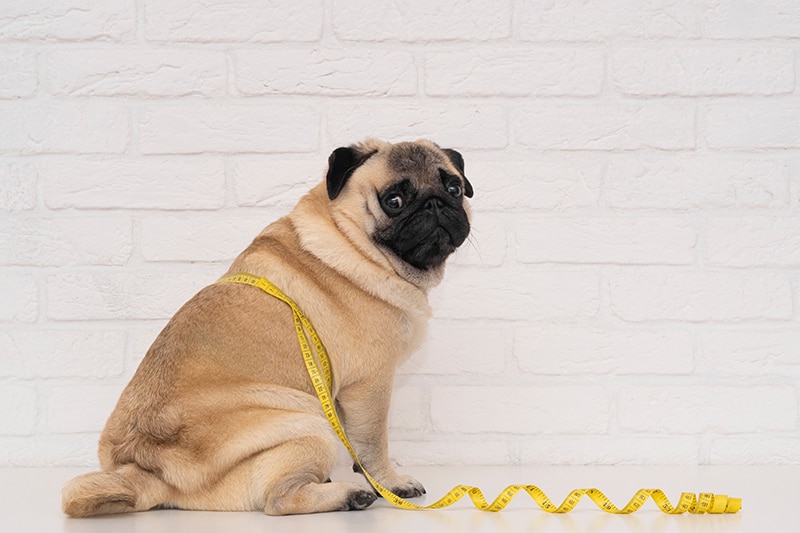
4. Poor Diet
Diet is as important to dogs as it is to any animal. Pugs do well on a high-quality dog food, whether commercially manufactured or home-prepared with the supervision and approval of a canine nutritionist or your veterinarian. Any diet should be appropriate to your dog’s age (puppy, adult, or senior). It is recommended to consult with your vet for doubts about your Pug’s diet.
5. Bad Routines
If your Pug falls asleep with you on the couch and then sleeps with you in bed, it may be that your habits are the cause of your Pug’s bad habits. Pugs like to follow their humans around and partake in some of the same activities. Determine how long you spend in front of the TV to see whether this could be the cause of your sedentary pup.
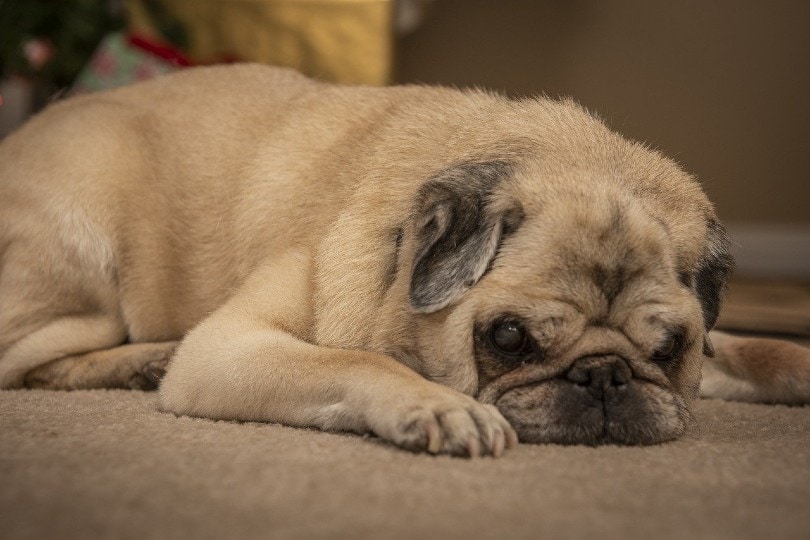
6. Illness
Some illnesses can cause lethargy and even fairly minor ailments can wipe a dog out, in the same way illness can leave us feeling jaded and in need of extra rest. Watch your Pug’s general health, monitor everything from feeding to toileting habits, and if things don’t improve, speak to your vet and provide the symptoms.
Conclusion
Pugs can be fun-loving, affectionate, and jaunty little pets that want to spend as much time as possible with us. While they do sleep for up to 14 hours a day and make a lot of noise while they are sleeping, they actually have similar sleeping habits to other breeds of dog. If yours is sleeping for longer than 14 hours a day, it may be worth investigating to determine the cause and changing habits to help achieve optimal sleeping habits.
Featured Image Credit: Africa Studio, Shutterstock


